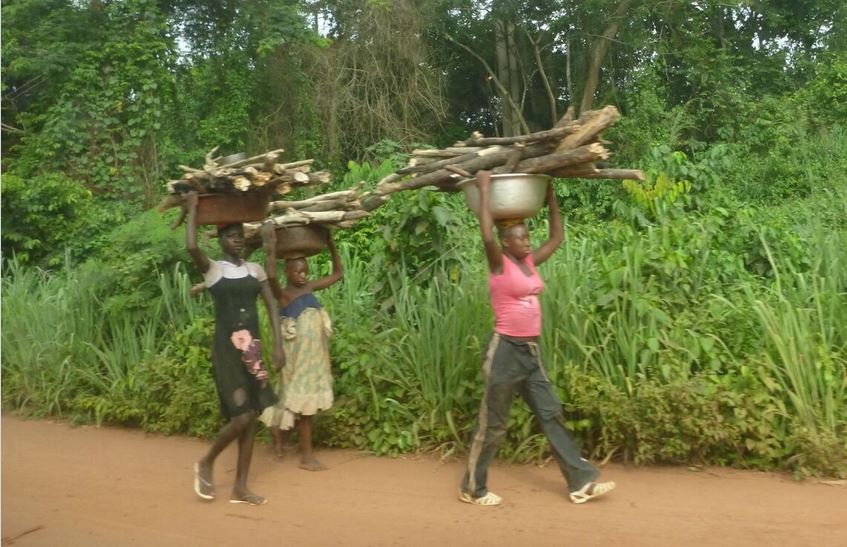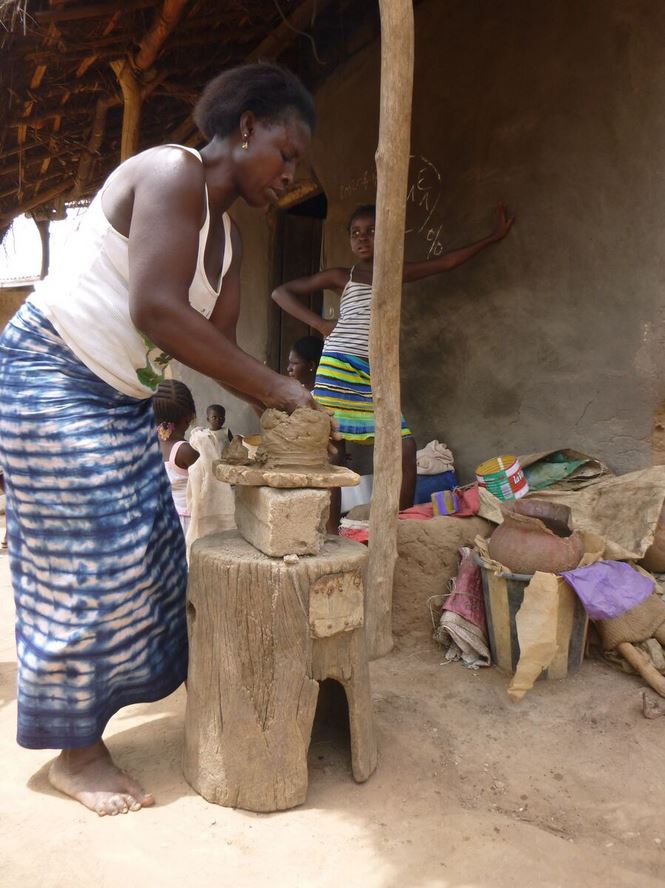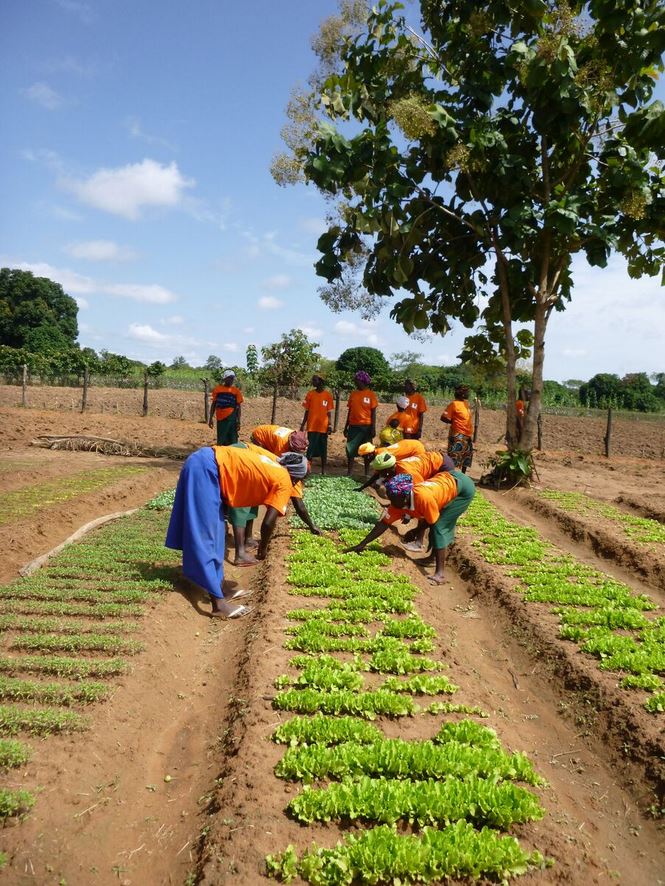Bridging the Gap
Nurturing Connections is a Helen Keller designed project that grew out of our CHANGE Enhanced Homestead Food Production Program. It was first piloted in Bangladesh.
It is the start of the rainy season in northeastern Côte d’Ivoire’s Boudi village, and laughter mingles with the thunderous drops of a sudden downpour as residents recall their introduction to the Helen Keller International Nurturing Connections Gender Empowerment sessions.
“We were dividing up the cashews into men’s and women’s piles, and one pile kept just kept growing: at the end, we had sixteen for women and six for men!” As his wife chuckles beside him, the Boudi village chief explains this activity, in which each cashew represents a household task, and participants sort them depending on whether men or women normally undertake it. “I wanted them to be more equal,” he said, “so now I’ve started to collect wood while at the fields or to help light the fire while my wife is out getting water.” Seated nearby, his neighbor Patrice agrees, “Sometimes I go and search for wood or wash the child when my wife is too busy.” His grinning wife Briska jumps in to confirm, “It’s true! And I like having his help!”

Helen Keller Intl designed Nurturing Connections to address gender inequities and decision-making imbalances that contribute to nutrition within a household. Many people are still surprised to learn that an increase in a woman’s income has a ten times larger effect on children’s nutrition and health than a similar increase in a man’s income! The importance of gender empowerment in reducing poverty and malnutrition, particularly among young children, cannot be overstated. Knowing that gender equality would reduce the number of underweight children in sub-Saharan Africa by 1.7 million makes it clear that we must must lose no time narrowing the gap in as many households as possible.
An increase in a woman’s income has a ten times larger effect on children’s nutrition and health than a similar increase in a man’s income
Our Nurturing Connections Gender Empowerment curriculum integrates essential life-skills training, beginning with communication and relationship-building skills, and participants work together to address gender norms and assumptions that impact their own lives, particularly within the domains of agriculture and nutrition. By exploring the power dynamics operating in their households and communities, participants consider ways to work collaboratively to change personal behaviors and community norms.
There are many contributing factors to the link between gender inequality and malnutrition. When women are disempowered, they may, for example, find it difficult to access the financial resources to purchase iron-rich (and more expensive) foods that are essential components of a good diet during pregnancy and a child’s first 1000 days. Shouldering a heavy workload around the home makes them less likely to breastfeed and adopt proper hygiene routines; lacking decision-making power makes it impossible to ensure equitable food sharing, and sometimes even to seek healthcare for a sick child—or for themselves; and lower literacy levels cuts rural women off from information about optimal health, nutrition, and hygiene practices. Empowerment is also essential within agriculture: Africa’s agricultural productivity could rise by 20% if women had equal access to land, seeds, and fertilizer!

So far, we are thrilled with how positive the reception has been. A man from Motiamo village bounced his son on his knee and spoke about the positive changes happening in his household: “Now, when we have a problem in the family, we feel we can sit down to discuss and resolve it together.” Saliman, a woman from Motiamo, illustrates how this project is directly improving her daughter’s chances of realizing her own potential: ‘Before, when I was cooking, I would often call my daughter to help. My son would stay and study. Now, my husband and I both recognize that our daughter needs to study, too: when I need help cooking I ask my husband, instead!’
Finally, if the question, “Can you come to my village next?” from a neighboring village chief upon seeing Nurturing Connections in action is any indication, we have a lot of progress to look forward to … and work!










